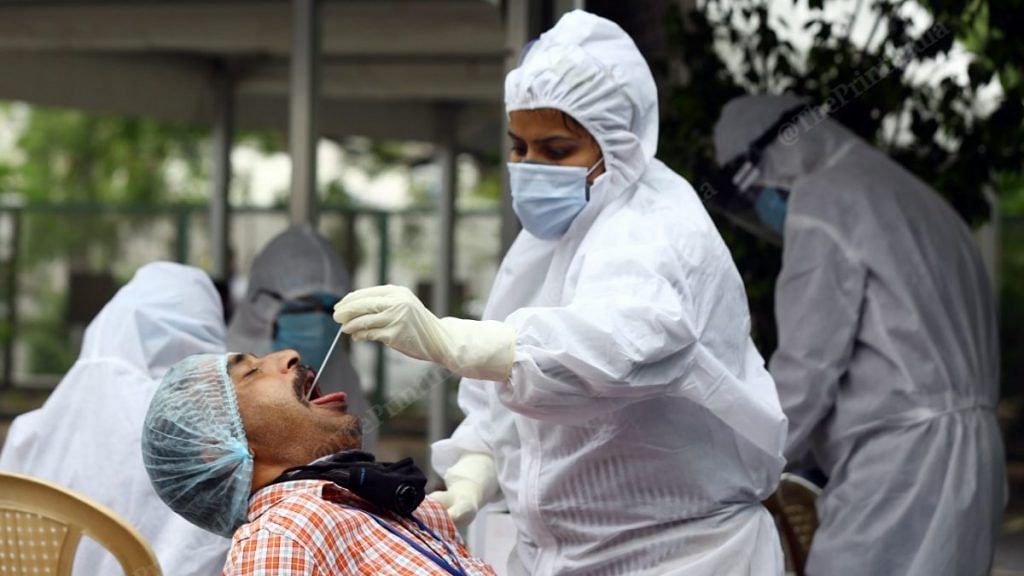New Delhi: The central government has been accused by The Lancet of putting a “too positive spin” on the Covid-19 situation in India, with an editorial in the journal also raising concerns about the Indian Council of Medical Research (ICMR) “straying from scientific evidence” to present a more optimistic assessment.
“… Presenting the current situation in India with a too positive spin not only clouds reality but also hampers vital public health initiatives. Perpetuating unrealistic claims or failing to honestly report negative news creates uncertainty among the public and healthcare professionals, discouraging people from taking preventive action or taking public health messages seriously,” the editorial says.
“India has the expertise in medicine, public health, research, and manufacturing to lead the nation through the Covid-19 pandemic. To capitalise on these attributes, the country’s leaders must respect scientific evidence, expert commentary, and academic freedom, and not provide false optimism,” it adds.
Although the editorial praises India’s early lockdown, imposed 25 March but now largely withdrawn, the overall tone of the piece is critical, with questions also raised about the quality of data in India.
Also Read: Step up testing, work on messaging to beat rumours, Modi tells CMs of 7 worst-hit states & UT
Lockdown praised
Among other things, The Lancet editorial questions the role of the country’s apex medical research organisation, ICMR, including its insistence on hydroxychloroquine, a malaria and rheumatoid arthritis drug that has, since the beginning of the pandemic, been touted as a potential preventive and treatment.
The editorial has also weighed in on ICMR Director General Balram Bhargava’s controversial push for the release of a Covid-19 vaccine by 15 August, much before its trials were expected to be completed in the due course.
“This pressure to avoid negative news, and to offer reassurance, appears to have been felt by several professional scientific organisations in India. The Indian Council of Medical Research (ICMR) has been singled out by experts for straying from scientific evidence, appearing at worst politically motivated and at best overly optimistic,” the editorial states.
“A letter from the Director General of the ICMR, Balram Bhargava, said that the ICMR envisaged launching a coronavirus vaccine on Aug 15 (Indian Independence Day; a deadline considered unrealistic by most medical experts); ICMR has supported treatment with hydroxychloroquine despite insufficient evidence; and news reports claim that data on coronavirus infection were removed from a scientific paper,” reads the editorial.
The Lancet’s criticism of the ICMR with respect to HCQ comes months after it was forced to retract a study that linked the drug to negative effects among patients, as the data used raised a stink among experts around the world.
However, the editorial echoed the WHO’s praise of India’s early lockdown. “During the lockdown period, tertiary care provision was increased, including access to specialist equipment such as ventilators. Testing numbers also increased quickly, with India being among the first to roll out innovations like pooled testing,” it states.
“India has also been at the forefront of efforts to develop and manufacture a vaccine, both through domestic vaccine candidates and manufacturers such as the Serum Institute of India preparing production capacity for internationally developed vaccine candidates.”
Also Read: ICMR denies sero survey hushed up data showing up to 48% Covid reach in hotspots in May
